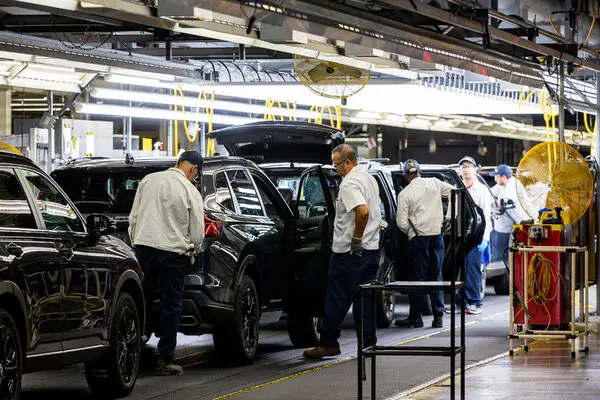
In a significant move to protect its automotive industry, the European Union (EU) is set to impose hefty tariffs on imports of electric vehicles (EVs) from China. This decision comes after a majority of EU member states expressed support for the new measures, which aim to safeguard local manufacturers from what EU officials deem unfair competition fueled by Chinese state subsidies.
Under the new policy, tariffs on Chinese-made electric vehicles will rise sharply, increasing from the current 10% to as much as 45% over the next five years. While the intention behind these tariffs is to bolster the European car industry, concerns have emerged that such measures could lead to increased prices for consumers looking to purchase electric vehicles.
The decision has created a rift among EU member states, with countries like France and Italy in favor of the tariffs, while Germany, which has a car manufacturing sector heavily reliant on exports to China, has voiced opposition. The potential for escalating trade tensions has prompted fears of a trade war between Brussels and Beijing, especially given China’s condemnation of the tariffs as protectionist.
China’s electric vehicle market has seen rapid growth over the past two decades, and its manufacturers, such as BYD, have begun expanding into international markets. The EU represents a crucial overseas market for Chinese EVs, and Beijing has been counting on its high-tech exports to help revitalize its struggling economy. The introduction of these tariffs is seen as a protective measure to ensure that European manufacturers can compete with lower-priced vehicles from China.
In response to the increasing competitive pressure, the EU previously implemented varying import tariffs on different Chinese manufacturers during the summer. The recent vote was intended to determine the long-term application of these tariffs over the next five years. The European Commission assessed individual duties based on the extent of state aid received by major Chinese EV brands, including SAIC, BYD, and Geely.
The division among EU member states was evident during the voting process. While countries like France, Italy, the Netherlands, and Poland rallied behind the tariff proposal, Germany, along with several other nations, abstained from voting, reflecting a lack of consensus on the issue. German carmakers have openly criticized the tariffs, with Volkswagen calling them “the wrong approach.”
Germany’s top industry association, BDI, has urged both the EU and China to engage in constructive dialogue to prevent a trade conflict from escalating further. The European Commission has indicated its commitment to exploring alternative solutions to the tariffs, aiming to address concerns about what it describes as “injurious subsidisation” of Chinese electric vehicles.
In a response to the EU’s decision, China’s Commerce Ministry labeled the tariffs as “unfair” and “unreasonable,” but expressed hope that the matter could be resolved through negotiations. However, the dispute has raised alarm among industry groups beyond the automotive sector, who fear potential retaliatory tariffs from China. For instance, a trade association representing the French cognac industry voiced concerns, stating that their sector feels neglected and at risk of being adversely affected by the trade tensions.
Meanwhile, recent statistics indicate a notable decline in EU registrations of battery-electric vehicles, which plummeted by 43.9% in August compared to the previous year. In the UK, while demand for new electric vehicles reached a record high in September, this surge was largely attributed to commercial contracts and significant discounts from manufacturers. The Society of Motor Manufacturers and Traders (SMMT) has expressed worries that the market isn’t expanding rapidly enough to meet government-mandated targets for electric vehicle sales.
The UK’s automotive industry is under pressure to comply with ambitious electric vehicle sales targets. The Zero Emission Vehicle (ZEV) mandate requires that at least 22% of vehicles sold this year be zero-emission, with expectations of that figure climbing to 80% by 2030 and 100% by 2035. Manufacturers that fail to meet these quotas may face fines as high as £15,000 per vehicle.
Leaders from several major car manufacturers, including BMW, Ford, and Nissan, have recently reached out to UK Chancellor Rachel Reeves, cautioning that the industry may fall short of these targets. They attribute the challenges to various economic factors, including rising costs for energy and materials, as well as interest rates, making electric vehicles persistently more expensive. Additionally, concerns about the adequacy of the UK’s charging infrastructure continue to hinder consumer confidence in switching to electric vehicles.








